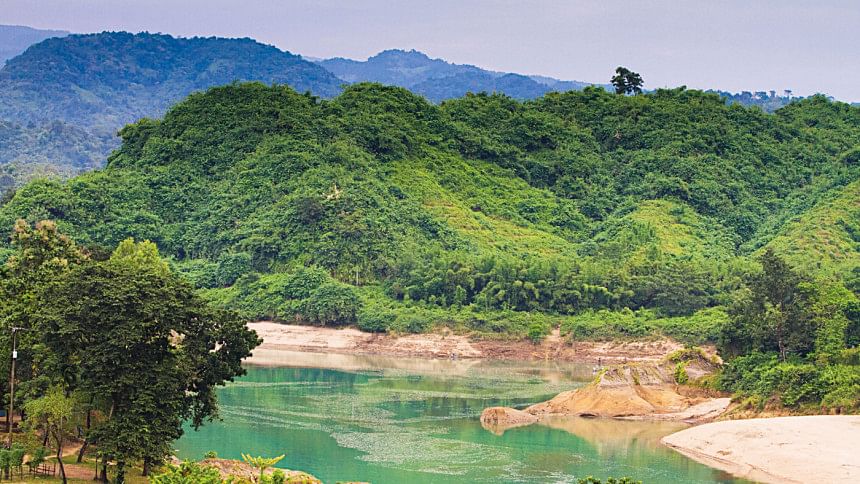Time for Nature

The theme for World Environment Day (WED) 2021, "Ecosystem Restoration", is the ultimate environmental call to action. We can't reverse time and prevent the damage that has already been done to our environment. But, we can rise now to restore it. What sets apart this year's WED is that it also marks the launch of the UN Decade on Ecosystem Restoration. 2021 to 2030 are the most critical years for preventing climate change by reversing the devastation already caused by the destruction of our ecosystems.
There are various types of ecosystems, such as forests, oceans, farmlands, wetlands, and cities. The responsibility for restoring these ecosystems falls on everyone – starting from the government to each individual.

Ecosystem restoration is especially important in Bangladesh. Dhaka is the second most polluted city in the world in terms of air pollution. According to a World Bank report, the monetary cost of environmental degradation in urban areas is around one percent of the national GDP annually. The UN has said that the economic benefits of ecosystem restoration initiatives exceed the investment cost by nine times while doing nothing is at least three times costlier. We can applaud the robust economic growth of Bangladesh, but without starting to care about rejuvenating our environment, this growth cannot be sustained.
If the economic impacts aren't enough to spur us into action, let's consider the implications of the geographic location of Bangladesh. Our country lies on the Bengal delta, which increases its risk of natural calamities such as floods, cyclones, tsunamis, and earthquakes. Rising global warming due to environmental pollution will only make things worse, especially for the 35 million people living in the coastal areas. Evidently, there is no time like the present to start doing our part.
So, what can we do to make our country, and by extension the world, greener? We can start with small individual lifestyle changes that will have a significant collective impact.
Plant more
Although large-scale tree-planting initiatives can impact our air quality more significantly, we can also start at home by having indoor house plants or gardens on our balconies and rooftops. Rapid urbanisation in our cities cannot be halted, but we can still have greenery blanketing the concrete using vertical gardening. Outdoor walls of both commercial and residential buildings can be integrated with hydration systems to support plants.
Consume less
Many campaigns will have us believe that we must replace every product and appliance at home with something supposedly more environmentally friendly to lead a greener life. This is widely known as greenwashing and only intends to make us consume more. In reality, one of the best ways to be friendlier to the environment is to return to what we all learned in school: Reduce, Reuse, Recycle. We should only buy products we need or purchase second-hand, reuse packaging and recycle whenever possible to prevent even more wastes from going to the landfill.
Eat plant-based
Cutting down on meat and dairy consumption reduces greenhouse gas emissions and excessive use of water. According to World Wildlife Fund, 75% of the world's food supply is sourced from 12 plants and five animal species. Having a greater variety of plants in our diets can help lessen the adverse impacts on agriculture and food security. While we can't all expect to turn vegetarian overnight, we can start small by cutting out animal products during the weekend or on alternative days of the week.
Email responsibly
While trying to make physical changes to our lifestyles, we should also keep our digital activities in check. Many are unaware that email pollution is real. Emails have a massive carbon footprint due to the operations of data centres collecting the information of the emails. If the receiver's life is unchanged by our email, it is best not to send it.
This is in no way an exhaustive list of all the things an individual can do to restore their ecosystem, which is why education, research and awareness are crucial to the process. As we continue to learn more, let's hope that the spirit of WED 2021 pushes us to make the changes necessary to achieve a greener Earth by 2030.

 For all latest news, follow The Daily Star's Google News channel.
For all latest news, follow The Daily Star's Google News channel. 



Comments